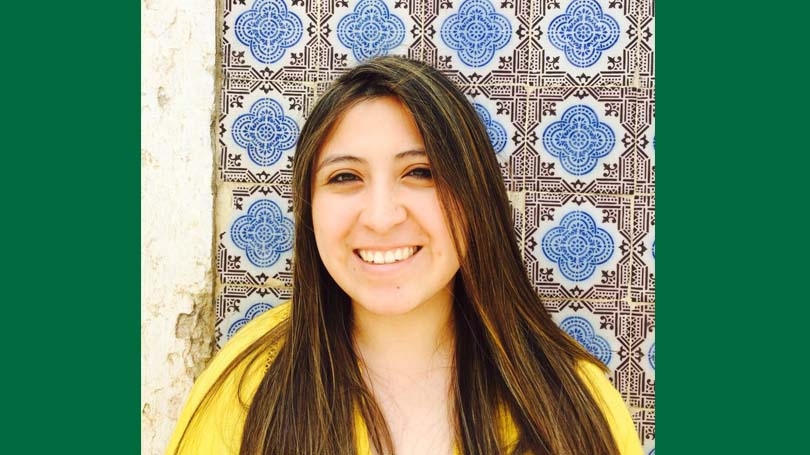
Yesenia Barragan is in the Society of Fellows at Dartmouth.
Postdocs at Dartmouth are featured in our regular Proust Questionnaire series.
Yesenia Barragan is the second postdoctoral scholar featured this month in our Proust Questionnaire Postdoc Series. Yesenia is a Postdoctoral Fellow in the Society of Fellows. She's affiliated with the History Department, the African and African American Studies program, and the Latin American, Latino, and Caribbean Studies program.
What was your first degree and where did you study?
B.A. in Philosophy and History at Brown University (‘08).
What is your secret vice?
Watching terrible reality TV shows, it helps me unwind!
What was your favorite childhood toy or activity? Do you still do/play this?
I was a bit of a strange child and resisted the idea of a “favorite childhood toy,” but I’m going to have to embrace my inner ‘nerd’ and say that I loved to read and (unsurprisingly) I still do!
You’re stranded on a desert island. You can choose three books, two music albums, and one movie, what are they?
Okay, books: The Brothers Karamazov by Fyodor Dostoevsky, One Hundred Years of Solitude by Gabriel García Márquez, and The Arcades Project by Walter Benjamin. Albums: El original sonido de la cumbia colombiana (1948-79) and The Complete Discography (1988) of Minor Threat. Movie: Biutiful (2010).
What is your signature dish?
Chili, Lemon, Basil Shrimp Couscous—it’s amazing, ask me for the recipe.
On a sunny afternoon you suddenly find you’ve completed all your work (including laundry, grocery shopping etc.), what do you do?
Call up my mom or curl up on the couch with my husband and catch up on the latest episode of Narcos or whatever is tickling our fancy.
What is your greatest fear?
Climate change.
What’s your hidden superpower?
I speak to the dead…through my archival documents!
What did you want to be when you were 18?
I wanted to be an activist and writer—not too far off what I’m doing now.
How did you find your research niche?
My research focuses on the complex political and social lives of people of African descent in Latin America and the Americas, while my current book project examines the gradual abolition of slavery on the Pacific Coast of Colombia in the first half of the nineteenth century. I came to the book project through a confluence of factors—political, I was and am involved in Afro-Colombian solidarity campaigns and efforts; personal, some of my Colombian ancestors were enslaved Africans whose blood and sweat fed the gold mines and plantations of Colombia; and scholarly, because this specific history of slavery and freedom has never been told before.
What are you most excited to experience at Dartmouth?
I’ve been here slightly over a year and have connected with a wonderful community of colleagues who are not just creating dynamic scholarship, but are committed to building better, more just futures. Moving forward, I’m excited to share this intellectual journey with my students in the classroom.